第61章 Chapter 13(3)
Give Peni's and my love to the dearest 'nonno'(grandfather)whose sublime unselfishness and want of common egotism presents such a contrast to what is here.Tell him I often think of him,and always with touched feeling.(When HE is eighty-six or ninety-six,nobody will be pained or humbled by the spectacle of an insane self-love resulting from a long life's ungoverned will.)May God bless him!--...Robert has made his third bust copied from the antique.
He breaks them all up as they are finished --it's only matter of education.
When the power of execution is achieved,he will try at something original.
Then reading hurts him;as long as I have known him he has not been able to read long at a time --he can do it now better than at the beginning.
The consequence of which is that an active occupation is salvation to him.
...Nobody exactly understands him except me,who am in the inside of him and hear him breathe.For the peculiarity of our relation is,that he thinks aloud with me and can't stop himself....I wanted his poems done this winter very much,and here was a bright room with three windows consecrated to his use.But he had a room all last summer,and did nothing.
Then,he worked himself out by riding for three or four hours together --there has been little poetry done since last winter,when he did much.
He was not inclined to write this winter.The modelling combines body-work and soul-work,and the more tired he has been,and the more his back ached,poor fellow,the more he has exulted and been happy.
So I couldn't be much in opposition against the sculpture --I couldn't in fact at all.He has material for a volume,and will work at it this summer,he says.
'His power is much in advance of "Strafford",which is his poorest work of art.Ah,the brain stratifies and matures,even in the pauses of the pen.
'At the same time,his treatment in England affects him,naturally,and for my part I set it down as an infamy of that public --no other word.
He says he has told you some things you had not heard,and which I acknowledge I always try to prevent him from repeating to anyone.
I wonder if he has told you besides (no,I fancy not)that an English lady of rank,an acquaintance of ours,(observe that!)asked,the other day,the American minister,whether "Robert was not an American."The minister answered --"is it possible that YOU ask me this?
Why,there is not so poor a village in the United States,where they would not tell you that Robert Browning was an Englishman,and that they were sorry he was not an American."Very pretty of the American minister,was it not?--and literally true,besides....
Ah,dear Sarianna --I don't complain for myself of an unappreciating public.
I HAVE NO REASON.But,just for THAT reason,I complain more about Robert --only he does not hear me complain --to YOU I may say,that the blindness,deafness and stupidity of the English public to Robert are amazing.Of course Milsand had heard his name --well the contrary would have been strange.Robert IS.All England can't prevent his existence,I suppose.But nobody there,except a small knot of pre-Raffaellite men,pretend to do him justice.Mr.Forster has done the best,--in the press.
As a sort of lion,Robert has his range in society --and --for the rest,you should see Chapman's returns!--While,in America he is a power,a writer,a poet --he is read --he lives in the hearts of the people.
'"Browning readings"here in Boston --"Browning evenings"there.
For the rest,the English hunt lions,too,Sarianna,but their lions are chiefly chosen among lords and railway kings....'
We cannot be surprised at Mrs.Browning's desire for a more sustained literary activity on her husband's part.
We learn from his own subsequent correspondence that he too regarded the persevering exercise of his poetic faculty as almost a religious obligation.But it becomes the more apparent that the restlessness under which he was now labouring was its own excuse;and that its causes can have been no mystery even to those 'outside'him.
The life and climate of Italy were beginning to undermine his strength.
We owe it perhaps to the great and sorrowful change,which was then drawing near,that the full power of work returned to him.
During the winter of 1859-60,Mr.Val Prinsep was in Rome.
He had gone to Siena with Mr.Burne Jones,bearing an introduction from Rossetti to Mr.Browning and his wife;and the acquaintance with them was renewed in the ensuing months.Mr.Prinsep had acquired much knowledge of the popular,hence picturesque aspects of Roman life,through a French artist long resident in the city;and by the help of the two young men Mr.Browning was also introduced to them.
The assertion that during his married life he never dined away from home must be so far modified,that he sometimes joined Mr.Prinsep and his friend in a Bohemian meal,at an inn near the Porta Pinciana which they much frequented;and he gained in this manner some distinctive experiences which he liked long afterwards to recall.
I am again indebted to Mr.Prinsep for a deion of some of these.
'The first time he honoured us was on an evening when the poet of the quarter of the "Monte"had announced his intention of coming to challenge a rival poet to a poetical contest.
Such contests are,or were,common in Rome.In old times the Monte and the Trastevere,the two great quarters of the eternal city,held their meetings on the Ponte Rotto.The contests were not confined to the effusions of the poetical muse.Sometimes it was a strife between two lute-players,sometimes guitarists would engage,and sometimes mere wrestlers.The rivalry was so keen that the adverse parties finished up with a general fight.
So the Papal Government had forbidden the meetings on the old bridge.
But still each quarter had its pet champions,who were wont to meet in private before an appreciative,but less excitable audience,than in olden times.